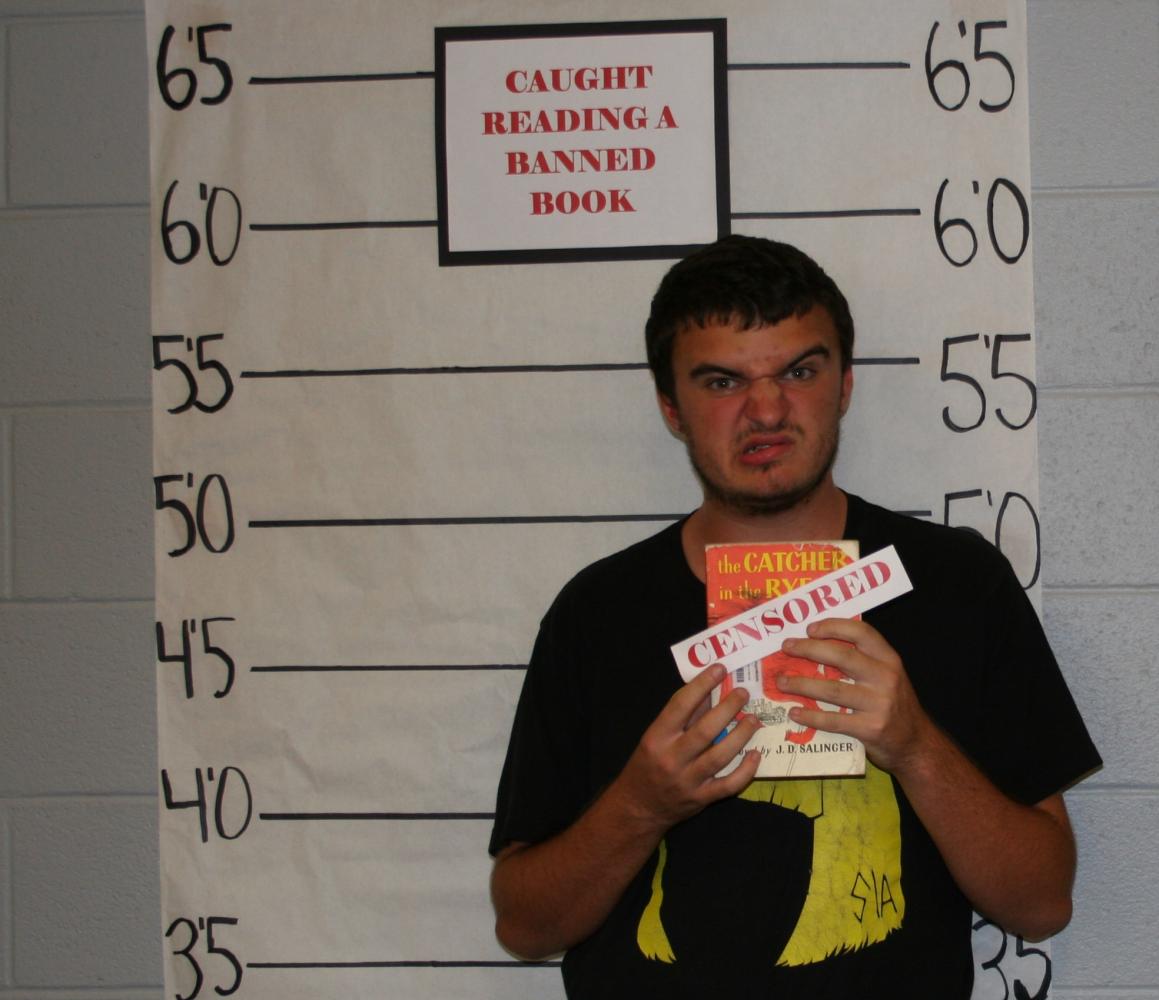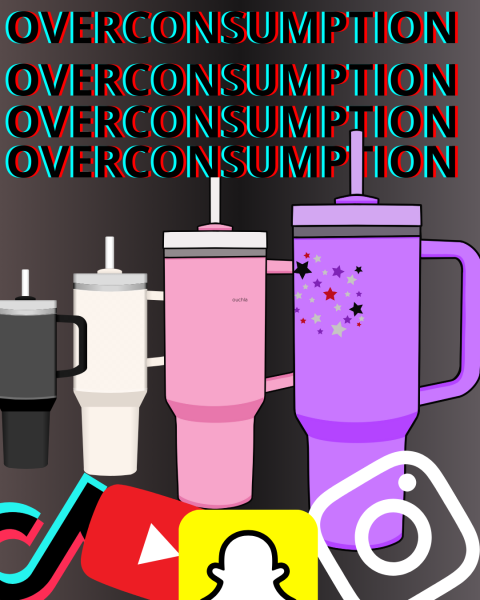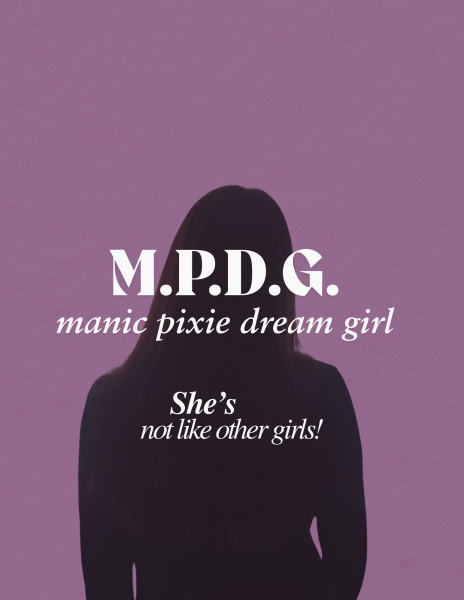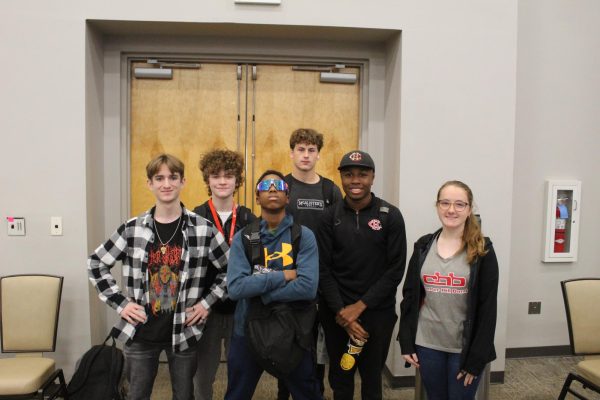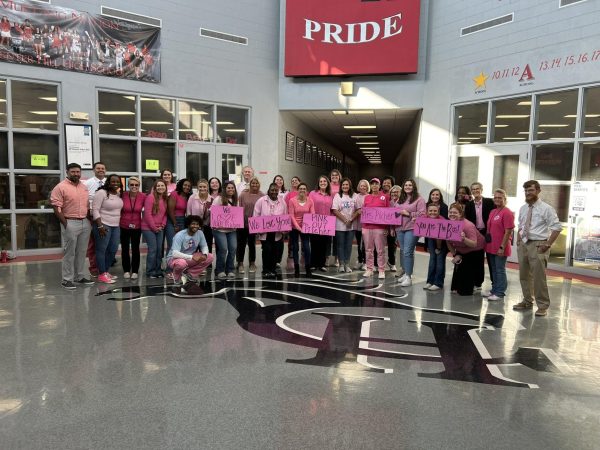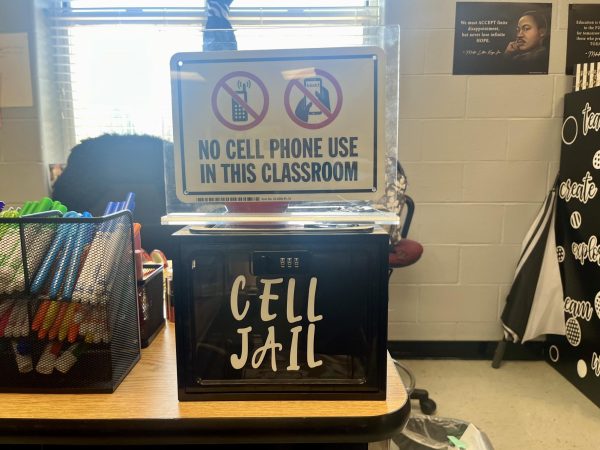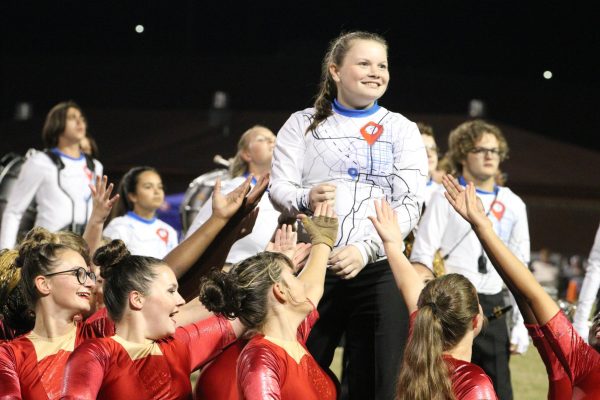Banned Books Week: 35 years later
Jake Lankford holds a copy of J.D. Salinger’s “The Catcher in the Rye,” one of the most censored books in American literature since its publication in 1951.
It was 1982, conservatism had been reborn in the United States, Ronald Reagan finished his first year as president, and a whole slew of books were being banned and challenged. In that year, librarian Judith Krug decided to take a stand against this disturbing trend. Together with her coalition, the Office for Intellectual Freedom, she worked to start the first Banned Books Week. Now, 35 years later, we as a country have made great strides against censorship, but at the same time, there is still a lot to be done.
What even is Banned Books Week? Well, it’s quite simple. Banned Books Week is a week that brings awareness to banned and challenged books across history. The ban or challenge can be as ridiculous as that of “1984,” which was because the novel, according to the Jackson County, Florida challenge, is “pro-communist and contained explicit sexual matter.” Or it might be as sensational as William S. Burroughs’ novel “Naked Lunch,” which was banned in Boston, but the decision was reversed after a sensational obscenity trial. Sure, that practice was ended after “Naked Lunch” wasn’t declared obscene, but now, even in this day and age, books are still being banned and challenged by various school boards and governments for either made-up, frivolous, or completely overblown reasons.
Banned Books Week, celebrated this year from Sept. 24-30, is here to both remind us as readers and citizens of the United States that there is still a lot to be done to fight book banning and to raise awareness of our freedom to read, which is being threatened by challenges made by all kinds of groups. For instance, just last year, “Snow White and the Seven Dwarfs” was removed from a library in Qatar for containing “indecent” illustrations, and in another case from 2016, the Toni Morrison classic, “Beloved,” was challenged in the Fairfax County school system in Virginia.
These are only two of the many instances of book challenging and banning last year, which proves that we still need Banned Books Week, 35 years after Krug established it. We need it especially now more than ever in the tumultuous political climate of the U.S where anything can be challenged, censored or banned by any group and anyone. Sure the days of obscenity trials for books may be over, but we still have a long way to go before the right to read can be ensured for everyone.

Morgan "Jake" Lankford
Staff/Reporter, The Pony Express.
Morgan "Jake" Lankford was a staff reporter for The Pony Express.

Emily Merz
Editor-in-Chief, The Pony Express.
Emily Merz was the Editor-in-Chief for The Pony Express for the 2018-2019 school year. Merz was a member...

